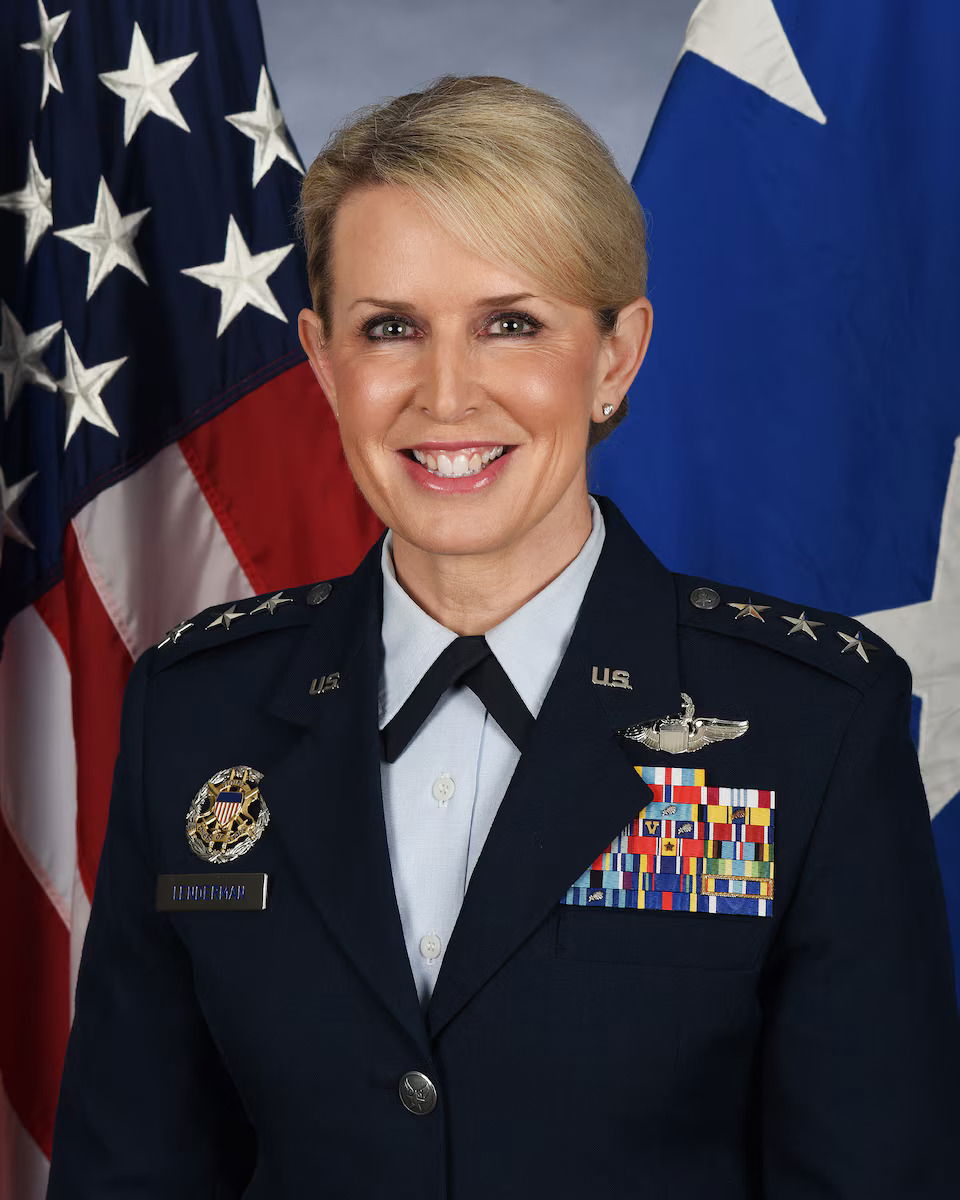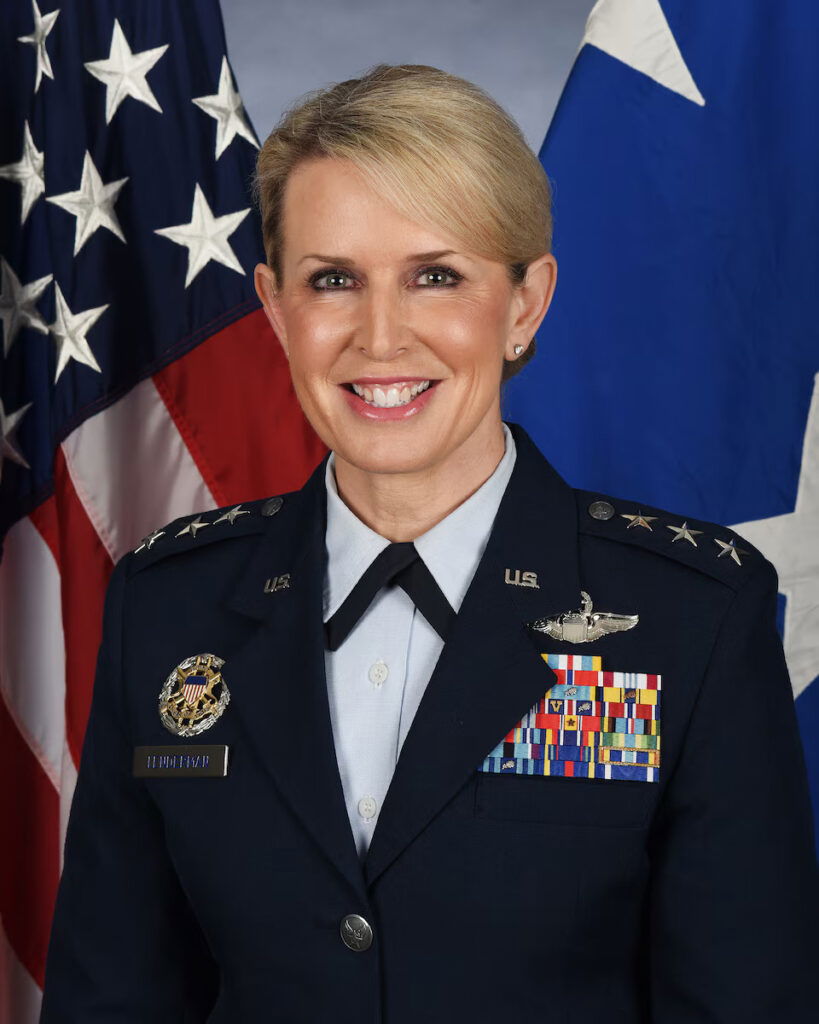
Lt. Gen. Laura Lenderman
“THIS is a pivotal time for all of us here in the Indo-Pacific theater,” said Lt. Gen. Laura L. Lenderman, deputy commander of Pacific Air Forces, relaying a message from PACAF commander Gen. Kevin Schneider.
Lenderman spoke via Zoom during the annual economic forum hosted by the Saipan Chamber of Commerce at the Kensington Hotel on Wednesday.
Today, she said, “the actions of the United States, our allies and partners, and our strategic competitors will influence … social, economic, and security conditions for the foreseeable future.”
Lenderman said the U.S. military, aligned with America’s allies and partners, must continue to work together to deter and mitigate threats to “our collective security, prosperity, and freedoms.”
She said PACAF “will utilize the distinct advantages of airpower to lead this unified effort, taking swift and decisive action to defend a free and open Indo-Pacific.”
She said the U.S. military needs the CNMI’s help.
“PACAF comes to you today and every day acknowledging the challenges of the fiscal environment for the business community there in the CNMI. We know that your resilience has been tested to its limits in recent years by devastating typhoons, a global pandemic, and now an ongoing financial crisis. I assure you that General Schneider and I are committed to working closely and collaboratively with our private, nonprofit, and government partners here in CNMI. While we have made some strides in this area, there is still important work to do,” Lenderman said.
One thing that PACAF has done recently is to open a full-time, dedicated small business office at its headquarters. That effort falls directly under Lenderman’s supervision and the goal is to maximize opportunities for small businesses to contribute to the U.S. Air Force’s mission in the Pacific, she said.
PACAF has also advocated the initiative of Gov. Arnold I. Palacios and Northern Marianas College President Dr. Galvin S. Deleon Guerrero to place a full-time APEX Accelerator in the CNMI, she said. This is a Department of Defense program designed to help businesses determine if they’re ready for federal contracting. It also allows them to register in the proper places, see if they’re eligible for small business certification and research past contract opportunities.
In the past year, Lenderman said they have had a “PACAF teammate” on the ground, Glenna Palacios, and with her help and partnership with the CNMI Small Business Development Center, they have assisted over 200 small businesses and gotten them ready to do business with the federal government.
In partnership with the CNMI SBDC network, Lenderman said the “local vendors’ footprint in the contracting space has been growing in the past year,” and they are seeing a higher participation of CNMI businesses bidding on contract opportunities.
“We are very supportive of SBDC’s focus on increasing efforts in getting more businesses online to do business with the federal government,” Lenderman said.
She said PACAF recognizes “the vision, commitment and courage of the business community …. The courage to craft a business, meet a need, lead teams, and take employees’ well-being in your hand. We appreciate your leadership in this space, especially, as we work together and look beyond these ongoing projects to posture for more opportunities.”
Pivot background
In a March 15, 2023 letter to Adm. John Aquilino, commander of the U.S. Indo-Pacific Command, Gov. Palacios said the CNMI “is very much committed to U.S. national interests in our region and will do what we can to advance these interests as geopolitical tensions continue to heighten,” referring to China-U.S. relations.
Part of this commitment, Palacios said, included “the CNMI’s pivot away from its reliance on the Chinese tourism market, which comprised more than 50% of our tourism base, or about 200,000 visitors (pre-pandemic).”
Palacios asked Aquilino’s “support in seeking direct aid to replace the economic loss that we have experienced as a result of the CNMI’s pivot away from China.”
In an interview with Voice of America on Jan. 16, 2024, Palacios was asked if there was a revenue source to replace lost income from the Chinese tourism market.
“Not right now, so it’s very significant,” Palacios replied. “We’ve had to make drastic sacrifices in government operations and public services. People are leaving the Commonwealth because of the depressed state of the economy right now, because of the major impact of losing close to half-a-billion to a billion dollars’ worth of economic activities.”











